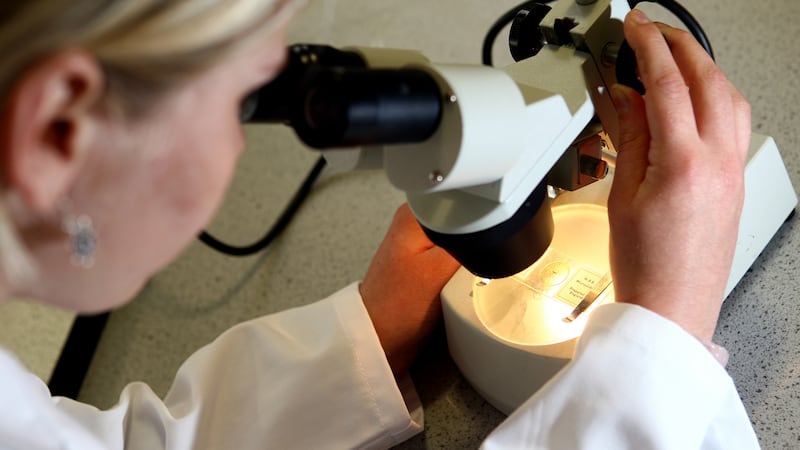In his letter (August 5) David McNarry offers a character assassination of the leader of Sinn Féin and claims her language and that of the taoiseach surrounding a border poll and the dreaded ‘backstop’ are an ‘insult to unionists’. His tone of anti-Irish sentiments of a bygone era and ‘not an inch’ attitude indicate a siege mentality so often found through the 1960s,1970s and 1980s when the language of paranoia, insults, abuses and rudeness was directed at the Catholic, nationalist community.
It is also obvious Mr McNarry and his crew are dismissing the impact and ignoring the dire warnings emanating from all quarters about the dangers of Brexit, no-deal or otherwise, will have in the north of Ireland. He must accept and acknowledge nationalist Ireland did not endorse leaving the EU. It is an insult not to recognise this. The British people voted to get out, forfeiting all of the benefits along the way including sacrificing the north along with Scotland and Wales.
However, he should fear little as his interests and those of his fellow unionists are firmly secure under the guise of the DUP, whose advocacy of ‘no-deal’ entails the likely breakup of the ‘precious union’, without the help of nationalists or the EU.
KEVIN McCANN
Belfast BT1
Public attitudes shifting over use of animals in research
I am writing in response to the article ‘Live Animal Testing at Lowest Level Since 2007’ (July 18) following the release of the Home Office animal testing statistics for 2018. While this may seem like progress for animals in laboratories, it does not mean animal testing is on the steady decline. Animal testing figures over the years are in fact comparable to those in 1987, when new laws were put in place to regulate testing.
The article mentions that the 10 universities and institutions performing the most experiments have signed a ‘Concordat on Openness on Animal Research’, to show commitment to reducing, refining and replacing animal tests. But if this measure exists, why haven’t we seen a more consistent reduction in number of tests conducted?
We contest claims that animal research ‘remains essential’ for medical progress. In many diseases – including HIV and Parkinsons – they do not occur naturally in animals so must be artificially induced. The result is inaccurate data and slow progress. Currently, 90% of drugs fail in human trials despite reports of ‘promising’ results in animal tests – whether on safety grounds or because they do not work. Three notable areas of failure are anti-cancer, neurological and cardiovascular drugs.
A 2019 IPSOS Mori report shows public attitudes are shifting, with 66 per cent of the UK concerned about use of animals in research. Readers should know the full story behind the statistics. It may seem like a step in the right direction, but we still have a long road ahead of us.
DR KATY TAYLOR
Cruelty Free International, London
Unfair economic structures
I was delighted to see the Open Golf return to Portrush. Congratulations to all concerned for their superb organisation.
However, on watching a Sky Sports documentary on the event and listening to the former first minister Arlene Foster intimate that she was one of the main people to make it happen, by getting the investment to the north coast, to make it a major tourism hub, it leads me to think how much we, here in south Down and the Carlingford Lough Area are being left behind.
If only we could get the same level of investment from the executive for our tourism infrastructure projects, that would last in-perpetuity.
I think of the words of Pope Francis: “Human rights are not only violated by terrorism and repression but also by unfair economic structures that creates huge inequalities.” Maybe today’s leaders may think of this when it comes to tourism in the Carlingford Lough Area of Outstanding Natural Beauty.
JIM BOYLAN
Warrenpoint, Co Down
Time to future proof social care workforce
It is absolutely vital that we secure the future of social care. Even people with the most complex needs can lead fulfilled lives when they’ve got the right support.
Yet the more we hear negative messages and success stories continue to be swept under the rug, the less people will consider a career in social care.
Support work, like so many careers, can be stressful but also very rewarding.
Sixty one per cent of support workers claim a career in care has an undeserved bad reputation. Faced with a shortfall of more than a million social care workers by 2037, we must proactively halt this impending shortfall.
There’s a huge education that must be done to ensure support work, which impacts and enriches so many lives, is understood and respected.
This needs to begin early on – in schools and throughout the education system – to ensure people value and consider this career, which can make a real difference to those they support.
KIM CORSINIE
Reading, England
Total waste of time
According to Brian Feeney (July 31) Brendan O’Leary is “the most prolific, perceptive and powerfully analytical writer on the north in the last 35 years.”
Professor O’Leary argues that after Brexit it would not be premature for the Irish government to establish a ministry for Irish national reunification and reconciliation.
It would not be premature, it would just be a total waste of time. Unionists want no part of a united Ireland or Irish unity in any shape or form.
If Irish people in Northern Ireland have had their fill of British rule all they need to do is assert and exercise their right to national freedom. But it won’t be a united Ireland. Brian Feeney should have more sense.
MALACHY SCOTT
Belfast BT1







